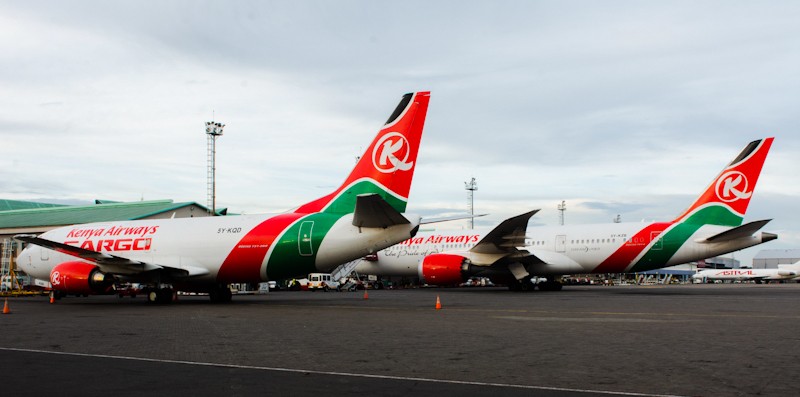Nairobi Securities Exchange (NSE) has extended the suspension from trading of Kenya Airways shares for an additional 9 months with effect from April 5th, 2021.
This is the third extension after the initial three months suspension from trading at the bourse in July 2020. Its share price is Ksh 3.83 per share as of July 2, 2020.
“The company is yet to finalise on its operational and corporate restructure for the eventual Government buy-out, following the publication of the National management Aviation Bill, 2020 on 18the June 2020,” said the NSE in a public notice Wednesday.
The Aviation Bill proposes the establishment of Kenya Aviation Corporation, a holding company that will house Kenya Airways, National Aviation Council and Kenya Airports Authority.
The Capital Markets Authority (CMA) approved the suspension pursuant to the Capital Markets Act and regulation 22.
The Kenyan government owns 48.9 per cent of the national carrier and it is expected to buy out the remaining holders of 51.1 per cent of the shares. Air France-KLM owns an almost 8 per cent stake in Kenya Airways.
Local lenders own a 38.1 per cent stake which they acquired in 2017 after KQ was unable to service its loans of Ksh16.9 billion.
The airlines’ net loss hit KSh36.2 billion at the financial year ended December 2020 from KSh 13 billion in 2019.
According to the International Monetary Fund (IMF) Kenya Airways, which like other airlines was hard hit by the travel restrictions introduced in
early 2020, had been accumulating losses since 2015.
However, IMF requires the National Treasury to conduct a financial evaluation of the 9 State-owned enterprises with the largest fiscal risks to the FY2020/21 budget to be completed by end-March 2021. They include Kenya Airways, Kenya Power, and several universities.
“The evaluation will cover Kenya Airways, Kenya Airports Authority, Kenya Railways Corporation, Kenya Power, Kenya Electricity Generating Company, Kenya Ports Authority and the three largest public universities. This evaluation will serve as a basis for extraordinary SOE support to these SOEs in FY20/21, which should be limited to exigent needs (the supplementary budget provides for 0.3 per cent of GDP),” IMF says.



